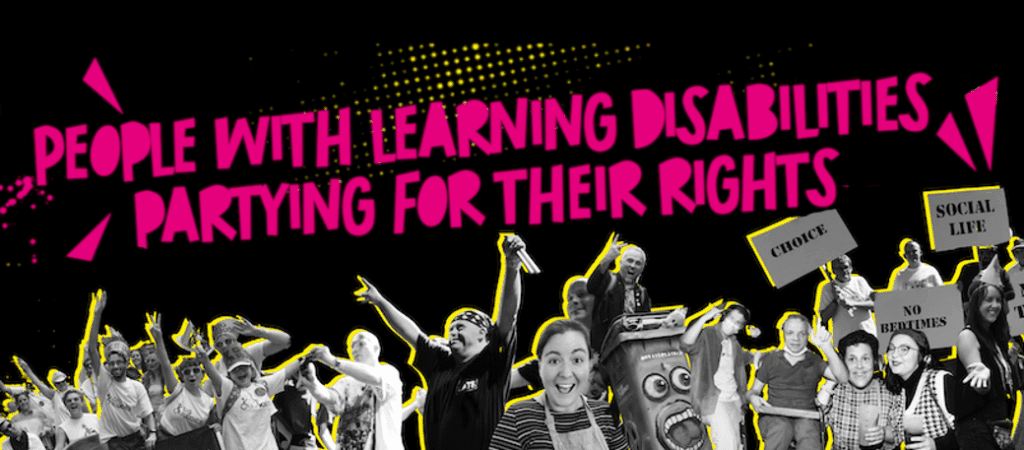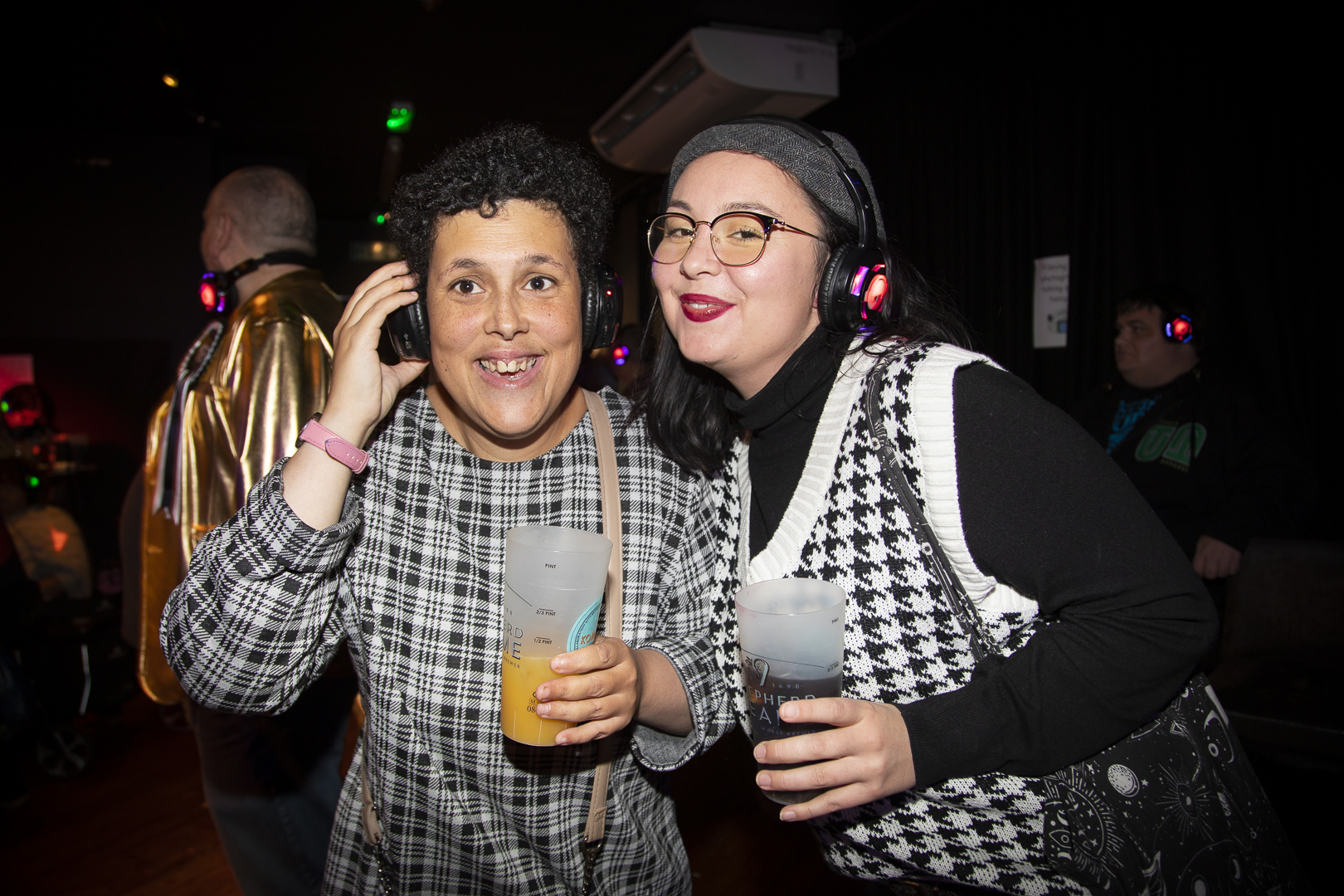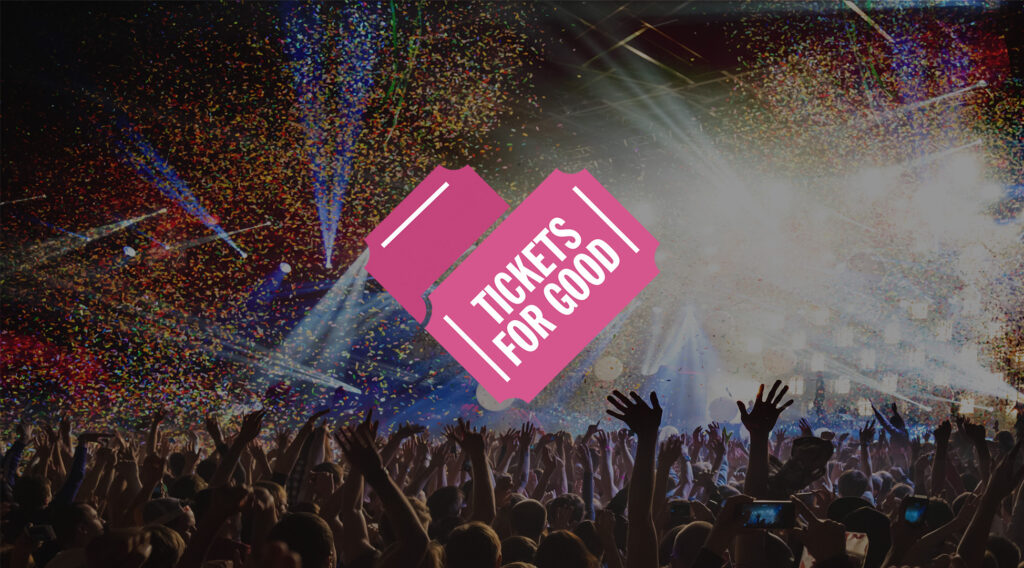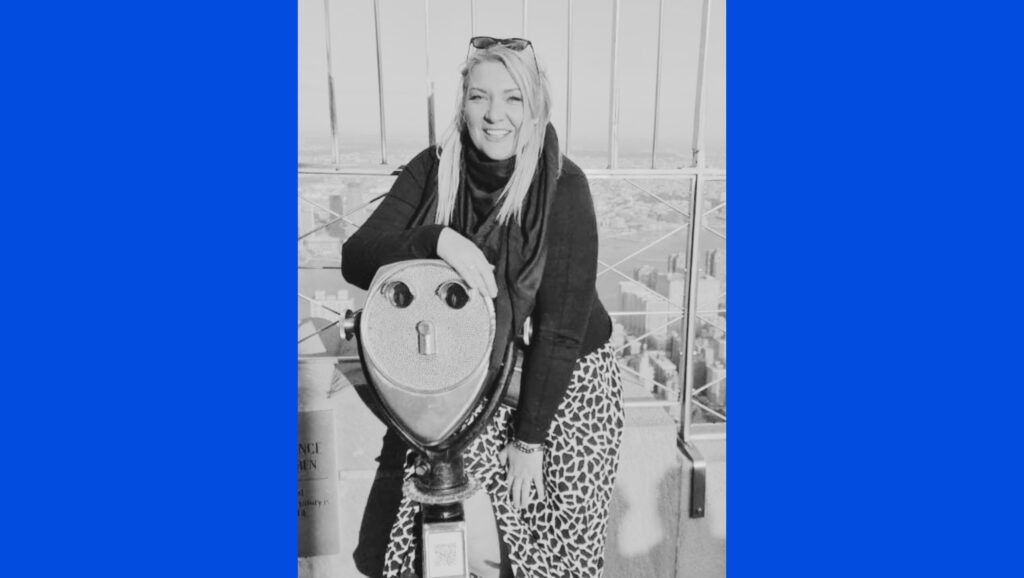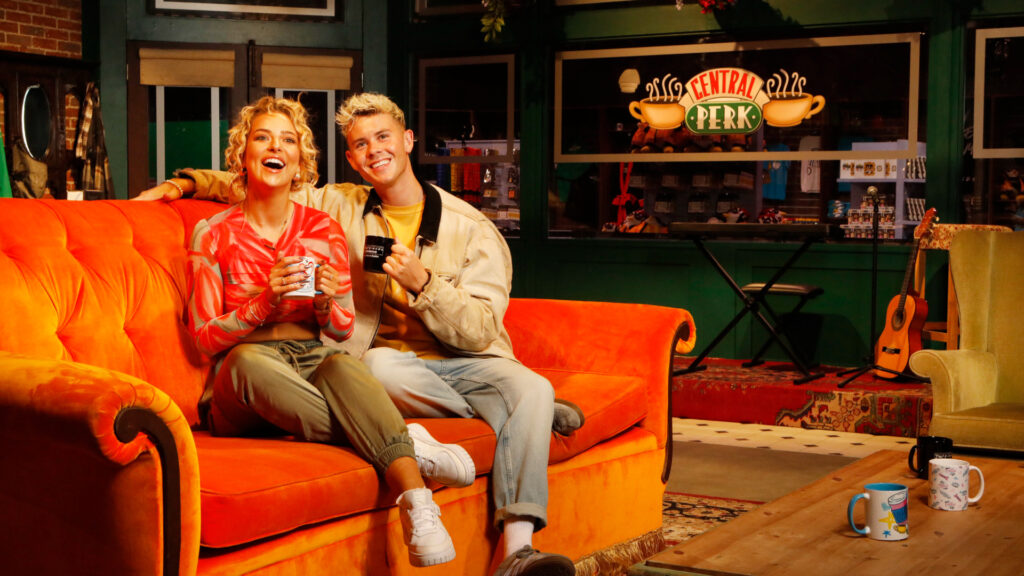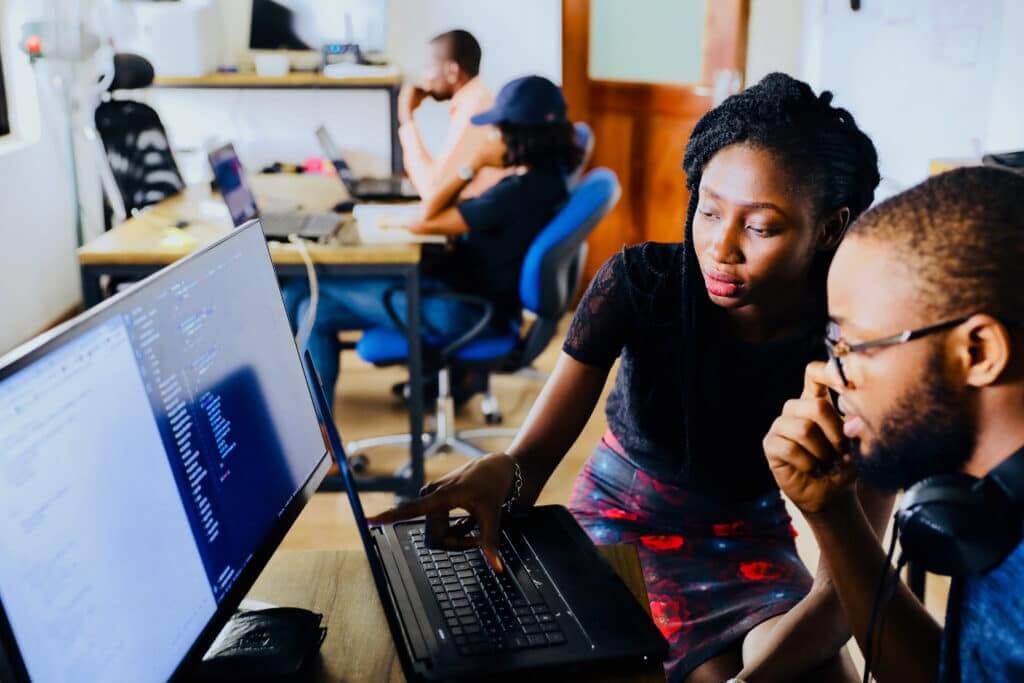Inside the matchmaking service that’s pairing up volunteers to learning disabled and autistic music fans, breaking down the barriers to nightlife.
How many gigs have you been to recently? How many times have you been to the theatre or seen a comedy show? What about going to the cinema, or to the pub? For most people, the answer is probably far too many times to remember, but for anyone who is autistic or has a learning disability, it might be too few to mention.
“For a lot of people who require support to be out, their support worker’s shift may end by 9pm, which means they no longer have a choice about whether or not they want to go home. And we think that’s wrong, for any adult,” says Luke Ellis from Stay Up Late, the charity that runs Gig Buddies as a way to help learning disabled people enjoy a night out if they want one.
Matching up trained volunteers with participants – and putting an emphasis on building genuine friendships – Gig Buddies offers the kind of 1:1 late-night support that other charity services never could.
“Every single person that I meet has some new reason as to why they struggle to get out in the evening and go to gigs,” says Ellis, who’s been working with the project for three years. “A few things that we see a lot are just people being isolated and not having anyone to go with. If you haven’t gone to gigs before, trying to navigate going into a venue can be really difficult too. You might not know where to buy tickets from, or you might not know how to travel to a gig, or what to expect when you’re there, where to stand, where the toilets are, all that kind of stuff… Then there’s the experience itself, and the specific challenges that might present. There are so many different elements to it. And that’s why Gig Buddies is such a simple idea – just having a person with you who maybe has a little bit more experience to help you out.”
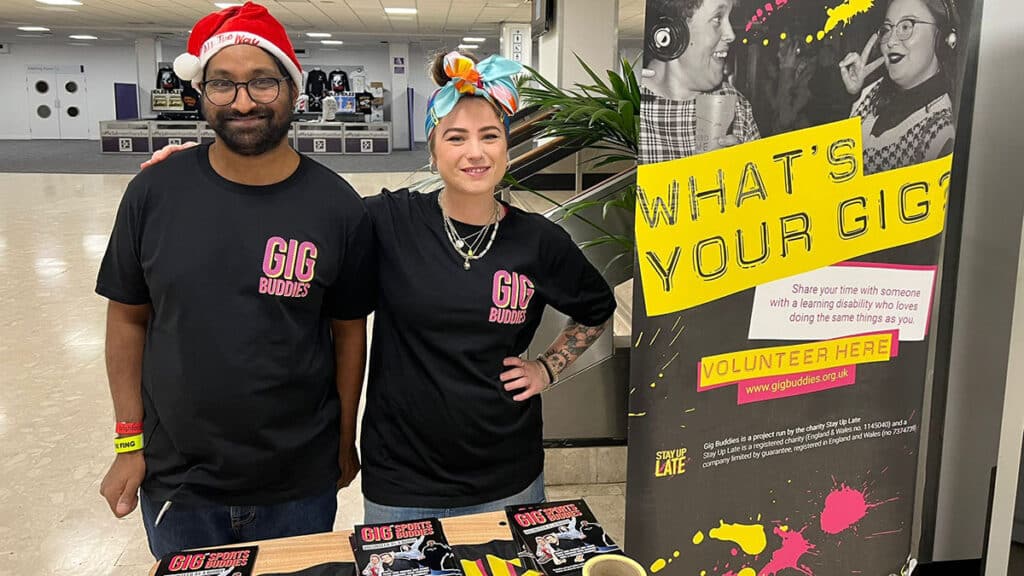
According to Mencap, around 1.5 million people in the UK have a learning disability – making up more than 2% of the adult population. Of that demographic, almost a third are also diagnosed as autistic, joining a rising population of almost 1 million autistic Brits. For some, a night out is less of a challenge than it is for others, but far too many people are finding it too difficult on their own – which is where Gig Buddies steps in.
“Some buddies don’t always go to gigs, but it’s generally always around nightlife,” explains Ellis. “Most people go to see live music or comedy, but some people just meet up and go to the pub, go to the cinema, or go to the theatre. It’s all about being present in mainstream culture and mainstream events.
“There are loads of events that are ran specifically for people with learning disabilities, and that’s amazing, and I think it’s really important for people to have that space, but mainstream gigs should be for anybody who wants to go to them.”
UK law currently only safeguards the most basic accessibility requirements (preventing discrimination), and it mostly only applies to physical access. For many grassroots venues – sometimes in small or listed buildings, often also struggling to stay afloat financially – this is already a real challenge. But that’s not the whole story.
“A lot of the time, accessibility might also mean just having a quieter space where someone can go and be away from the crowd, or accepting cash at a ‘cashless’ bar” explains Ellis, also speaking to the ticket price barrier that often puts mainstream gigs out of reach for anyone on disability benefits. “There are so many different examples. The ideal scenario is that everyone can work together to make gigs a better place for everybody. If there’s more people going to gigs, it helps everybody, and it makes the community stronger.”
But even with more holistic measures now in place in some venues, the challenge of going it alone is something that stops many people with learning disabilities from wanting to give it a try in the first place. Built around a network of music fans who are keen to help out, and to make a new friend, Gig Buddies offers to bridge the accessibility gap in a way that benefits everyone.
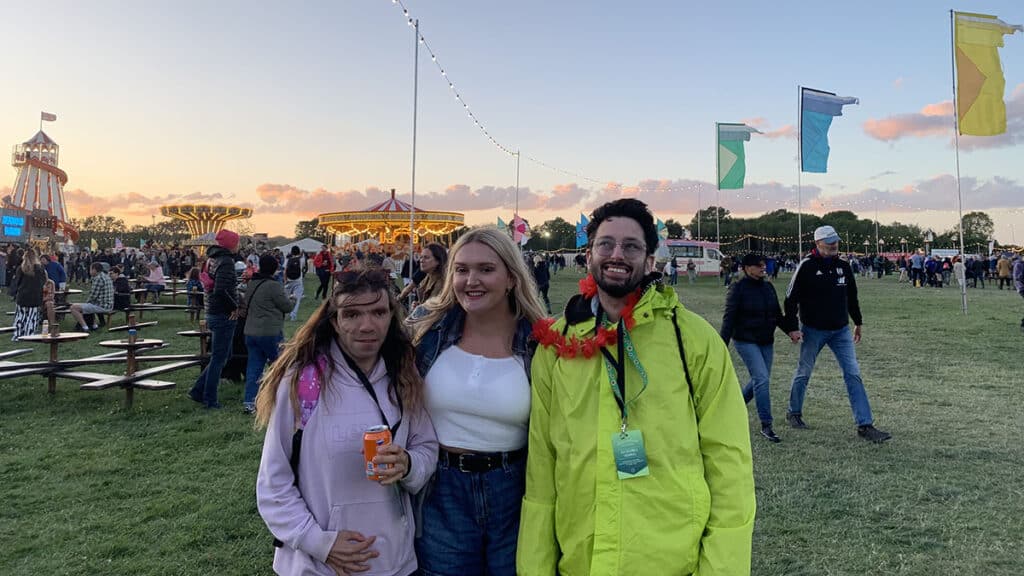
“The first person that I was matched with had spent many years being mute,” explains Brighton-based Josie, social worker by day, Gig Buddy by night. “She’d done loads of work on herself and got into a really good position, and she was at university and was doing amazingly, but she really struggled with anxiety in large groups. She wanted to go to some of her uni show performances but would really struggle with setting foot in the venue and taking that first step. She was always worried that people might either stare at her or not understand her, or that it might be overwhelming, or that someone might bully her. That was her fear. So we made a lot of steps towards building her confidence, of taking baby steps, talking things through. And, you know, she’s very independent now.”
Simple planning – breaking nights down into manageable chunks, working out transport routes and talking through pick-up times – helps, as does a whole range of other small considerations that many don’t realise might be an obstacle. “It’s sometimes just about arranging a place to meet if you lose each other,” she adds. “About thinking if you need to bring noise cancelling headphones if things are a bit overwhelming. Are there going to be flashing lights? Is it going to be too loud? Is there a disabled toilet?”

For Josie’s current gig buddy, it’s less about feeling overwhelmed and more about the logistics. “She’s super confident, super fun, very funny. You know, the life and soul of any situation you go into, but she wouldn’t necessarily be able to navigate a website independently,” explains Josie, before getting into the reeds of what really separates Gig Buddies from other support that might be available. “I think, for her, she just wants to feel like everyone else. She just wants to feel normal. She doesn’t want to feel like she’s ‘that girl with a learning disability’. She just wants to be young and having fun. So it becomes more about helping out in a way that nobody notices, so she doesn’t feel embarrassed. Maybe she needs help to know how much money to hand over to buy a beer, but it needs to be done in a way that’s really casual and relaxed and doesn’t seem like, ‘Oh, I’m looking after you’. I think if you saw us walking down the street, you’d just think we were two friends going out, and we are.”
And that, after all, is what Gig Buddies is really all about – offering a framework of support via a friendship matchmaking service that pairs up people who already enjoy the same kinds of things. There’s no better tribe than whoever you’re stood next to at a gig, and for most of the participants, it’s really all about just having someone like-minded to have a night out with.
“Stay Up Late came to my college way back, but I didn’t get involved then – it was later on, when I’d left college and when I’d lost quite a few connections with my friends,” says Jason O’Neill, who has a learning disability and who’s been using a Gig Buddy for several years now.
“It started out as less of a gig and more of a coffee thing… I personally wouldn’t see it necessarily as ‘support’. It’s more of like us building a great friendship. Because that’s what it’s all about really, going to a gig, and going with someone you see as a friend.”
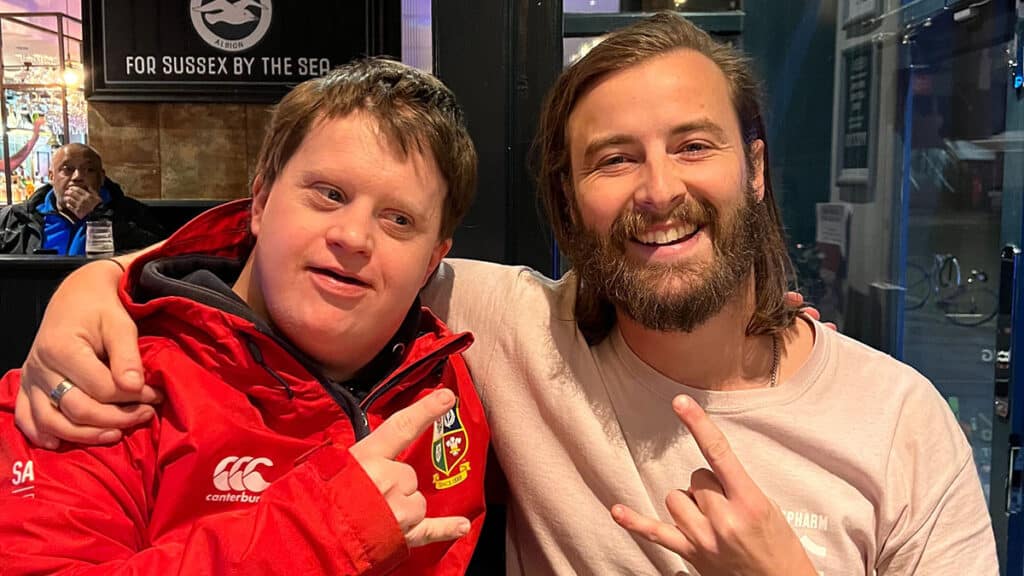
The setup is simple. Volunteers apply via the Gig Buddies website, and participants do the same (sometimes also being referred via other organisations, especially if they don’t use the internet). Training, DBS checks and more follow, before the project matches buddies up based on age, location, support needs and, most importantly, the kind of music they enjoy. With projects now up and running across the UK, as well as internationally in Germany, New Zealand, Australia and Ireland, the hope is that Gig Buddies becomes so prevalent that there’s no longer any need for it – that people with learning disabilities no longer have to seek it out.
“There’s nothing really to regret about this,” says Josie, reflecting on the six years she’s spent as a Buddy. “You’ll have fun and you’ll be doing good. And you know, I have a busy family life, and I have a busy, stressful job, and I find time. Anyone can do it.
“I care about people with learning disabilities. And I care about them feeling valued and being a part of society and feeling equal. And I think also, you know, helping people is good for you. It’s good for the soul, it’s good for your mental health.”
For Ellis, who’s been with the project long enough now to see the difference it’s making, the real impact of Gig Buddies has been felt through the lives it’s already changed.
“It’s really hard to put my finger on the specifics, but one person comes to mind,” he says. “He’s a guy in his 50s, and I matched him up with another guy in Brighton who’s very active in the local music scene, who goes to gigs most nights. The participant that I matched him up with had never been to a gig before in his life. He really applied because he just wanted to go for a cup of tea with somebody, which is completely fine. And that would have been totally okay if that’s all they ever did. But I checked in with them both recently and they both now go to gigs together every few weeks. The participant told me about how his confidence has changed, how he’s never had a brother before, but how he feels like his new Gig Buddy is his brother, and how he hasn’t experienced friendship like it before.
“He’s now become a bit of a local legend in the music scene. People know him. So now when he goes to a gig, not only is he confident in just stepping inside a venue, but he’s part of a beautiful community. That confidence filters into all aspects of your life – it’s about feeling less isolated, and it’s about the impact that has on your mental health. When we see results like that, it’s a reminder that such a simple idea can actually make a massive difference.”
Anyone interested in being a Gig Buddy, or in being buddied, only needs to visit the website to find out more. And if there’s not a local chapter of the project in your area, Stay Up Late can help you set one up. Still not convinced? Just listen to Jason:
“Give it a go. See if it’s for you,” he says. “You’ll be able to learn about someone, you might make a new friend, and you might even see the world a bit differently. There’s always something out there for everyone. Or there should be, anyway.”
Visit the Gig Buddies website here to find more information about taking part
